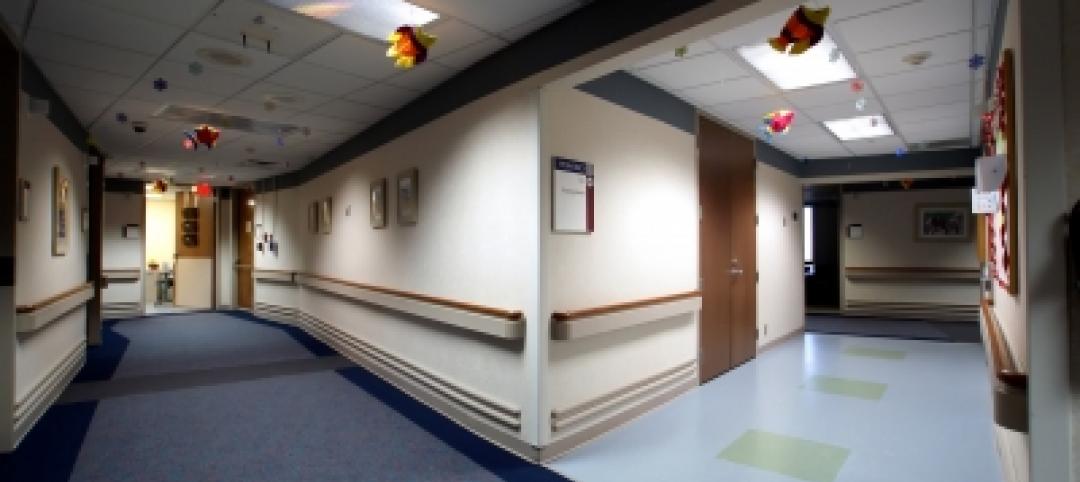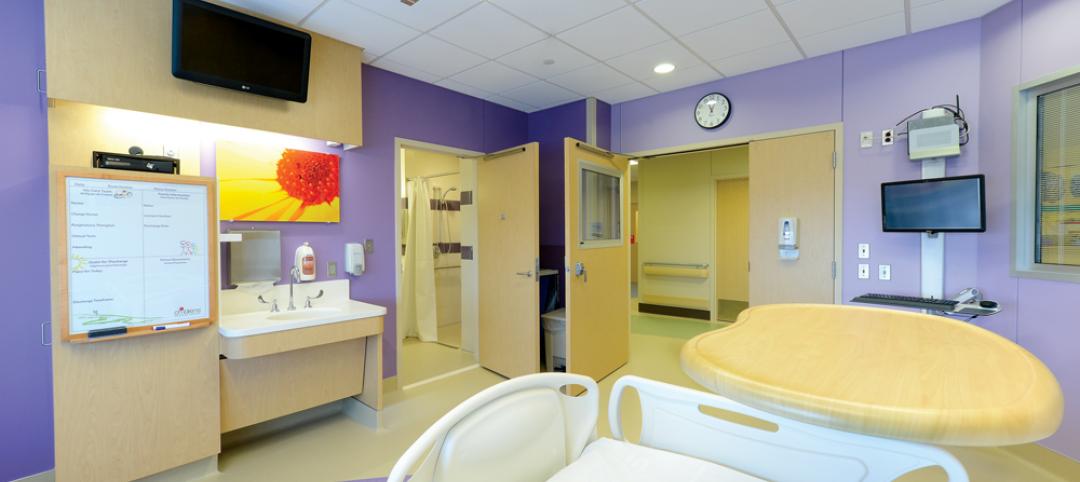Contractors need to be nimble enough to position themselves for whatever the market yields. “We want to be a ‘must consider’ for every project, and to be that, we must constantly improve,” says Pat Di Filippo, Executive Vice President of Turner’s Northeast region.
For the past several years, design-build has accounted for 10–15% of Turner’s work. “If you’re going to do design-build, you have to be able to drive the design,” Di Filippo says. The company is also pursuing projects more aggressively via public-private partnerships.
Last year, the company launched Turner Engineering Group, which now has 16 experts. Di Filippo, who leads the group, says there is “a tremendous thirst” for TEG’s services throughout the company. Its services have been expanded to include design peer review.
One recent project where TEG is providing services is the $114 million Center for Cyber Security Studies at the U.S. Naval Academy, which the design-build team of Turner and Skidmore, Owings & Merrill has been selected to deliver. The 206,400-sf facility will include a research and testing tank to support its engineering and weapons labs, an observatory, offices, and collaborative spaces for students and faculty.
Turner also has been cultivating its self-perform capabilities, such as concrete pouring. Last year, it hired nine regional Lean practice managers to streamline construction and reduce costs.
Making Turner a Lean practices company is a work in progress. “But the results are moving in the right direction,” Di Filippo says.
He is cautiously optimistic about business, especially in New York City, where several mega-projects are in the works. “We’re geared up for opportunities,” he says.
RETURN TO THE GIANTS 300 LANDING PAGE
Related Stories
| Dec 3, 2013
Creating a healthcare capital project plan: The truth behind the numbers
When setting up a capital project plan, it's one thing to have the data, but quite another to have the knowledge of the process.
| Dec 3, 2013
Architects urge government to reform design-build contracting process
Current federal contracting laws are discouraging talented architects from competing for federal contracts, depriving government and, by inference, taxpayers of the best design expertise available, according to AIA testimony presented today on Capitol Hill.
| Dec 3, 2013
Construction spending hits four-year peak after rare spike in public outlays
An unusual surge in public construction in October pushed total construction spending to its highest level since May 2009 despite a dip in both private residential and nonresidential activity.
| Nov 27, 2013
BIG's 'oil and vinegar' design wins competition for the Museum of the Human Body [slideshow]
The winning submission by Bjarke Ingels Group (BIG) and A+ Architecture mixes urban pavement and parkland in a flowing, organic plan, like oil and vinegar, explains Bjarke Ingels.
| Nov 27, 2013
Retail renaissance: What's next?
The retail construction category, long in the doldrums, is roaring back to life. Send us your comments and projects as we prepare coverage for this exciting sector.
| Nov 27, 2013
Pediatric hospitals improve care with flexible, age-sensitive design
Pediatric hospitals face many of the same concerns as their adult counterparts. Inpatient bed demand is declining, outpatient visits are soaring, and there is a higher level of focus on prevention and reduced readmissions.
| Nov 27, 2013
Exclusive survey: Revenues increased at nearly half of AEC firms in 2013
Forty-six percent of the respondents to an exclusive BD+C survey of AEC professionals reported that revenues had increased this year compared to 2012, with another 24.2% saying cash flow had stayed the same.
| Nov 27, 2013
Wonder walls: 13 choices for the building envelope
BD+C editors present a roundup of the latest technologies and applications in exterior wall systems, from a tapered metal wall installation in Oklahoma to a textured precast concrete solution in North Carolina.
| Nov 27, 2013
University reconstruction projects: The 5 keys to success
This AIA CES Discovery course discusses the environmental, economic, and market pressures affecting facility planning for universities and colleges, and outlines current approaches to renovations for critical academic spaces.
| Nov 26, 2013
7 ways to make your firm more successful
Like all professional services businesses, AEC firms are challenged to effectively manage people. And even though people can be rather unpredictable, a firm’s success doesn’t have to be. Here are seven ways to make your firm more successful in the face of market variability and uncertainty.

















